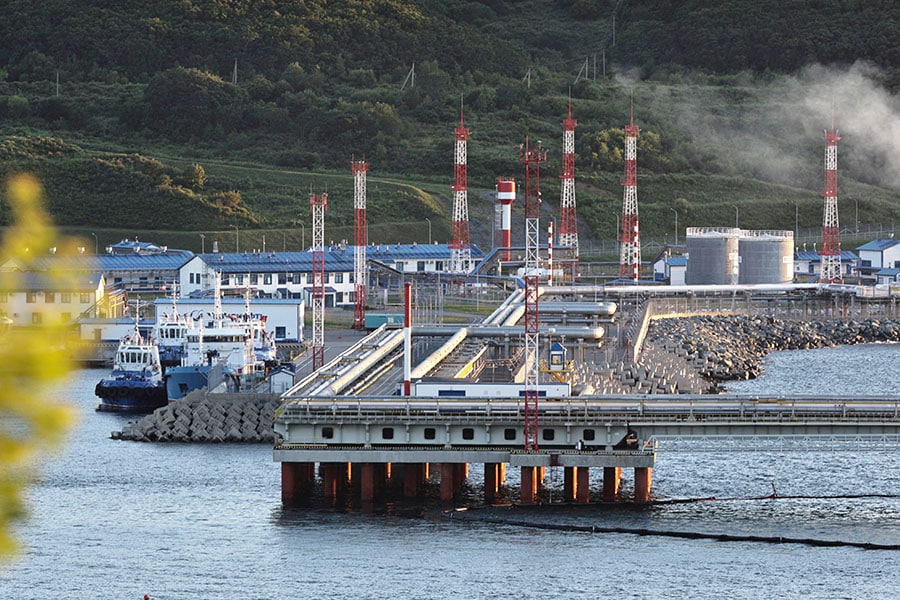
What price is right? Why capping Russian oil is complicated
Setting the price will require aligning the complex array of economic and diplomatic forces that govern volatile oil markets.
 A view shows the crude oil terminal Kozmino on the shore of Nakhodka Bay near the port city of Nakhodka, Russia August 12, 2022. Image: REUTERS/Tatiana Meel
A view shows the crude oil terminal Kozmino on the shore of Nakhodka Bay near the port city of Nakhodka, Russia August 12, 2022. Image: REUTERS/Tatiana Meel
WASHINGTON — As the United States and its Western counterparts race to finalize the mechanics of an oil price cap intended to starve Russia of revenue and stabilize global energy markets, a crucial question remains unresolved: How should the price be set?
The Group of 7 countries that formally backed the price cap concept this month are deliberating how much Russia should be allowed to charge for its oil as they prepare to release more details of the plan. It has emerged as a central question that could determine the success of the novel idea, Russia’s response and the trajectory of oil prices as winter approaches. Setting the price will require aligning the complex array of economic and diplomatic forces that govern volatile oil markets.
The consequences of getting the oil price cap wrong could be severe for the world economy, and time is running short. The Biden administration fears that if the cap is not in place by early December, oil prices around the world could skyrocket given Russia’s outsize role as an energy producer. That’s because when a European Union oil embargo and a ban on financial insurance services for Russian oil transactions take effect Dec. 5, the removal of millions of barrels of Russian oil from the market could send prices soaring.
European financing and insurance dominate the global oil market, so the looming sanctions could disrupt exports to parts of the world that do not have their own embargoes — by making it harder or more expensive to get Russian oil at a time when energy costs are already high. The price cap will essentially be an exception to Western sanctions, allowing Russian oil to be sold and shipped as long as it remains below a certain price.
The idea has won plaudits from economists who see it as an elegant win-win strategy for the West. But many energy analysts and traders have expressed deep skepticism about the concept. They believe that a fear of sanctions could scare financial services companies off Russian oil, and that Russia and its trading partners will circumvent the cap through new forms of insurance or illicit transactions.
©2019 New York Times News Service







